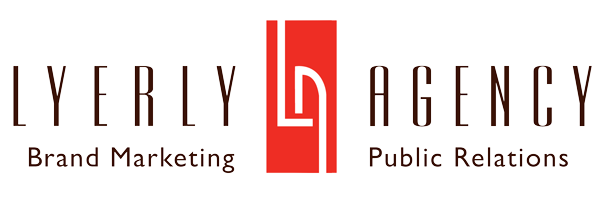As posted in the Gaston Gazette
Great corporate brands such as Chobani and Dollar Shave Club are known for their inventiveness, polish and ability to excite consumers. And while it’s unlikely any personal brand can meet those same standards, we still can aim to capture a few of those elements on a smaller scale. Why is this important? Because your personal brand is what follows you from job to job, so it means that it’s critical to keep it vibrant and healthy. In addition, personal brands often have even more clout with consumers than corporate brands do: according to Entrepreneur, employees routinely have 10 times more followers than their companies’ social media channels do, and the content shared by those employees receives eight times more engagement.
So what can you do to make your personal brand stand out? Here are a few ideas:
- Figure out your story. Your personal brand articulates your values and provides an entry point for people to understand you more effectively. In other words, your personal brand is your story. And the key to making the most of that story is to be able to communicate a unique identity and a clear value. For example, Oprah is a particularly powerful example of personal branding. She has had a direct, compelling and consistent brand since she began working as a talk show host in Chicago in 1984 and has managed to leverage her influence into a powerful brand that has broad influence across media platforms, in philanthropic circles and across popular culture at large. But she also serves as a shining example of the profound power of crafting a good story. The features that make you unique and make you valuable can take any number of forms, but if you stick to those two areas of narrative development, the chances of crafting a message with longevity are very high.
- Be authentic. In addition to crafting a unique and value-driven story, it’s important to make sure that story carries the weight of truth. That’s because building a personal brand isn’t just about creating a strong, convincing narrative (although, of course, that’s important); it’s also about making sure that you telling a story that is honest about who you are and what you believe. Chip and Joanna Gaines are the perfect example of personal branding authenticity. The couple has built a home design and renovation empire based on their mutual love of the business and their mutual love of one another. Consider how their brand differs dramatically from that of Tarek and Christina El Moussa, whose Flip or Flop brand dropped considerably after viewers learned the happy picture they painted wasn’t entirely true. If you create something that communicates an image or value system that isn’t based in honesty and fact, you’ll quickly lose credibility.
- Be consistent. Just like authenticity, consistency in messaging across your brand is really important to establishing trust in you and what you have to offer. But it’s also an important component in helping people distinguish you from similar candidates. According to brand strategist Ryan Erskine at Glass Door, it takes five to seven impressions for someone to remember a brand. He notes that one of the best ways to solidify that impression is by ensuring that what you present on all of the platforms allows people to identify you, your values and your mission easily and is reflective of what you consider important. While your messages don’t have to be identical – in fact, you may get a better response if you aren’t delivering content in the exact same way – those messages need to be compatible with one another and easily recognizable.
- Use social media selectively. Although there are now a host of social media options available, that doesn’t mean that you need to tap into all of them. Your time is limited and valuable, and you don’t want social media to be a replacement for the kind of person-to-person interaction that will always be a critical part of networking. Make deliberate choices about social media. Think about which networks are going to give you the best bang for your buck. Does your value and your vision lend itself more to short quips? Then Twitter might be the best social media platform for you — especially if there are already a large number of people in your field who use it as a resource. Are your products or services particularly photogenic? Then it might be to your benefit to focus on Instagram. This doesn’t mean you can’t phase in additional social media as necessary. It just means that focusing your attention on the platforms that are most advantageous will give you the most payoff and respect your time.
- One of the best ways to boost the visibility of your personal brand is to find ways to collaborate with others. Think of meetings, events, partnerships and other opportunities where you can team up with people to produce videos, take photos and complete projects that can be disseminated on social media. Together, you’ll be able to produce more content in less time and it will be more organic if it’s coming from multiple sources rather than simply from one person. Consider volunteering your expertise to nonprofits and other organizations. Giving of your time and talents can turn into an excellent way both to earn the admiration and trust of another local organization and to bring your skills some public recognition.
It’s easy to be shy about promoting yourself and building your brand, but the benefits of doing so in a strategic purposeful fashion are undeniable. These tips can provide some tangible insight into how to do this effectively – and without breaking the bank or tapping out your time.
